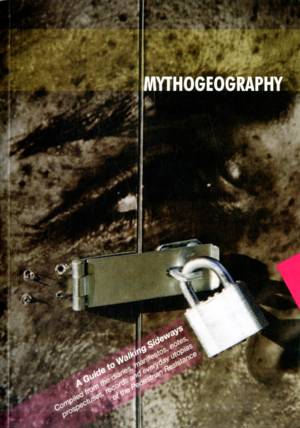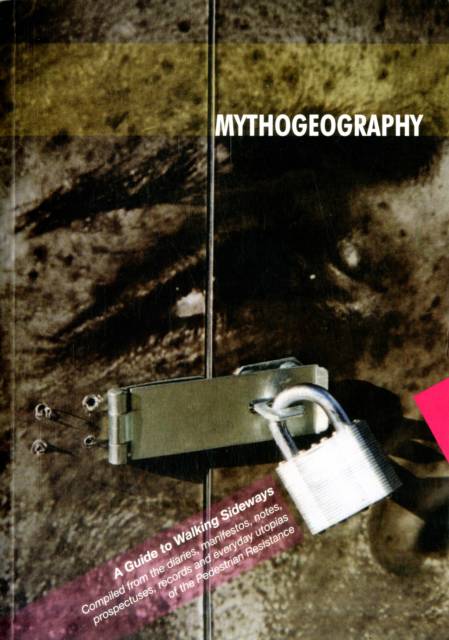
Je cadeautjes zeker op tijd in huis hebben voor de feestdagen? Kom langs in onze winkels en vind het perfecte geschenk!
- Afhalen na 1 uur in een winkel met voorraad
- Gratis thuislevering in België vanaf € 30
- Ruim aanbod met 7 miljoen producten
Je cadeautjes zeker op tijd in huis hebben voor de feestdagen? Kom langs in onze winkels en vind het perfecte geschenk!
- Afhalen na 1 uur in een winkel met voorraad
- Gratis thuislevering in België vanaf € 30
- Ruim aanbod met 7 miljoen producten
Zoeken
Mythogeography
A Guide to Walking Sideways - Compiled from the Diaries, Manifestos, Notes, Prospectuses, Records and Everyday Utopias of the Pedestrian Resistance
Phil Smith
Paperback | Engels
€ 41,45
+ 82 punten
Omschrijving
"Mythogeography: A Guide to Walking Sideways ... is at once a handbook, a manifesto, and a parody of handbooks and manifestos, a formal subversion in the tradition of Marshall McLuhan's collaborations with Harley Parker, with their resistance of cover-to-cover trajectory... ...despite its 'handbook' guise, Mythogeography offers neither practical application nor theoretical rubric. For example, the book begins with a map legend. Rather than wed hieroglyphic stamps to functional signifiers, they indicate 'pylons', 'tripods', 'benchmarks', 'wormholes', 'footnotes within footnotes', et cetera. These symbols continue through the manuscript, along the outer margins of the page, but they defy consonance with the text. This lends the book a complexity that parodies and rejects navigation, adding a layer of abstruse anti-meaning... ... The puckish nature of Mythogeography, alternating its informal punk aesthetic with postmodern academic patois, demands that we suspend our disbelief and embrace its stream of consciousness. With its manifold purposes, as travel guide, fiction, memoir, and encyclopedia, Smith's writing gives this impression of medleyed voices... The author's dedication to his thematically complex and inaccessible structure is impressive. His subject lends itself to improvised form, and the book, in its codified, non-linear construction, is distinguished from other works on related subjects. ... The book invites comparison to Iain Sinclair's London Orbital (a circumnavigation of London's M25 highway on foot) although Mythogeography does not have Sinclair's site-specific concentration. It also seems a close relative of the artist Patrick Keiller's series of films about England's changing landscape (London, Robinson in Space, Robinson in Ruins), which similarly meld fiction and fact. That these works are all a product of European, specifically British, psychogeography is not coincidental... Mythogeography, with its self-referential and folkloric sensibilities, also owes a debt to McLuhan and Jorge Luis Borges, for whom the architecture of the book was a primary theme. Philosophies of space and mapping are not alien to the history and theory of the book, and Smith demonstrates a unique understanding of this relationship between subject and form. From a review in Journal of Cultural Geography
Specificaties
Betrokkenen
- Auteur(s):
- Uitgeverij:
Inhoud
- Aantal bladzijden:
- 256
- Taal:
- Engels
Eigenschappen
- Productcode (EAN):
- 9780956263131
- Verschijningsdatum:
- 20/04/2010
- Uitvoering:
- Paperback
- Formaat:
- Trade paperback (VS)
- Afmetingen:
- 172 mm x 242 mm
- Gewicht:
- 616 g

Alleen bij Standaard Boekhandel
+ 82 punten op je klantenkaart van Standaard Boekhandel
Beoordelingen
We publiceren alleen reviews die voldoen aan de voorwaarden voor reviews. Bekijk onze voorwaarden voor reviews.









